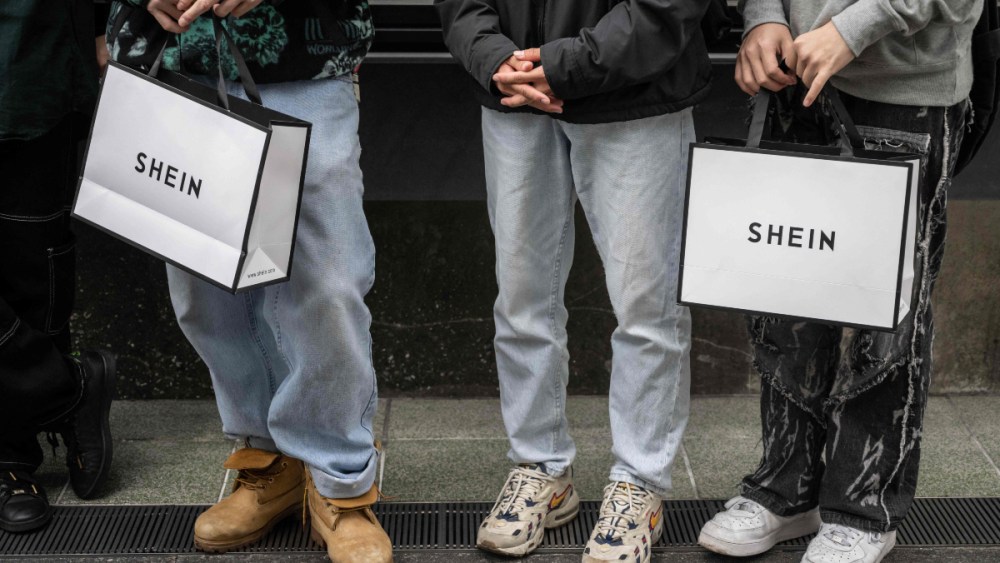
MILAN — Shein has been fined by the Italian Competition Authority, or AGCM, for alleged misleading and omissive green claims, marking the second financial sanction by a European authority in a little more than a month.
The Italian authority is imposing sanctions of 1 million euros on the ultra-fast-fashion giant claiming that statements available on its website and other informative or promotional online pages were “in some cases vague, generic and/or overly emphatic; in others, misleading by omission or deception.”
Contacted by WWD, Shein issued a statement saying: “Shein actively cooperated with the Italian Competition Authority (AGCM) throughout the entire proceeding, promptly taking all necessary steps to address the concerns raised as soon as it became aware of them. We have strengthened our internal review processes and improved our website to ensure that all environmental claims are clear, specific and fully compliant with applicable regulations.”
The AGCM refers particularly to Shein’s sustainability claims on the “Social Responsibility,” “#SheinTheKnow” and “evoluShein” pages. In the latter the authority uncovered misleading information on circular economy practices and product recyclability, deeming them “false or at least confusionary”
The authority also highlighted that descriptions and promotional copy about the “evoluShein by Design” line emphasized the use of “green fibers” without detailing their sustainability credentials nor highlighting that they represent a small portion of the Shein product offering. “These claims may lead consumers to believe not only that the ‘evoluShein by Design’ collection is made exclusively from ‘eco-friendly’ materials, but also that its products are fully recyclable — a notion that, given the fibers used and the recycling systems currently available, is not accurate,” the AGCM stated.
It also refuted Shein’s ambition to reduce GHG emissions by 2030 and achieve carbon neutrality by 2050, stating that they are contradicted by an increase in the e-tailer’s emissions in 2024.
To this end, the 2024 Sustainability and Social Impact Report released in June revealed growing carbon emissions. In particular, transport-related emissions rose 13.7 percent year-over-year to 8.54 million metric tons of CO2, largely due to increased reliance on air freight. This increase occurred despite Shein’s stated commitment to optimizing logistics and shifting to lower-emission transport options.
Shein made modest progress reducing its own Scope 1 and 2 emissions, such as offices and logistics centers, primarily through the adoption of solar power. But the company confirmed that Scope 3 emissions from its 7,200 contracted suppliers and manufacturers are still by far the largest share of its footprint.
Shein said it plans to reduce Scope 3 emissions by 25 percent by 2030, using 2023 as a baseline. However, the company emphasized that progress “depends entirely” on whether its independent suppliers choose to implement upgrades without direct funding from Shein. The company said it focuses on “encouraging” partners to adopt more energy-efficient methods.
The development in Italy comes as the ultra-fast-fashion giant’s business practices are increasingly under scrutiny in many countries.
For example, France has been taking aim at Shein from multiple angles.
Last month, the country’s anti-trust authority, the French Directorate General for Competition, Consumer Affairs and Fraud, or DGCCRF, fined the ultra-fast-fashion retailer a record 40 million euros claiming that Shein’s pricing practices were deceptive, offering customers “discounts” that didn’t exist.
In June, the French Senate passed a bill targeting Shein and other “ultra-fast-fashion” players, including Temu, by proposing a tax on small parcels shipped from outside the European Union ranging from 2 to 4 euros per package. The fee is intended to slow the influx of packages from Chinese platforms to France.
The bill needs to be validated by the EU, then will return to the Assembly where a stronger version passed in 2024, for a reconciliation process and final vote. That is expected to take place around October.
A few days later, Shein executive chair Donald Tang took to the stage at Paris’ VivaTech conference to defend the company’s business model. During his appearance, he said Shein is “not fast fashion,” instead it is “fashion-on-demand” and only produces what the market wants.
Meanwhile, last month Shein agreed to a settlement of $700,000, according to Napa County District Attorney Allison Haley, for a consumer protection lawsuit for unlawful shipping delays filed in Napa County Superior Court. According to the lawsuit, Shein had allegedly engaged in unlawful business practices by not properly notifying customers of shipping delays or offering them refunds when their orders were not shipped on time.
The AGCM has been particularly active on the fashion front as of late.
As reported, last week the Italian authority fined the Giorgio Armani company with 3.5-million-euro sanctions for alleged misleading advertising linked to sustainability statements contradicted by uncovered evidence of supply chain auditing negligence.
#Shein #Fined #Million #Euros #Italian #Competition #Authority






